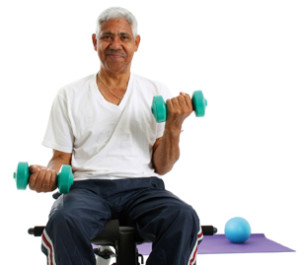Can Diet Sodas Make You Eat More?
Posted on March 1, 2014 by bob in NewsUCanUse
Driving After A Stroke
Though a stroke can cause deficits that impair driving, stroke survivors often resume driving without being formally evaluated. Research conducted with stroke victims a year after their stroke found the following:
— more than 51% returned to driving, many within a month following a stroke;
— only 5.6% received a formal driving evaluation;
— 11% who returned to driving said the stroke impacted their ability to perform life activities;
— 45% who returned to driving and reported no diminished ability, self-limited their driving.
The information was presented at the American Stroke Association’s International Stroke Conference 2014, including a suggestion that stroke survivors may benefit from formal evaluation before resuming driving. (Science Daily, www.sciencedaily.com, provided by the American Heart Association.)
Smoking After Cancer Increases Risk of Death 
Men who continued to smoke after a cancer diagnosis had an increased risk of death compared with those who quit smoking after diagnosis, according to a study published in Cancer Epidemiology, Biomarkers & Prevention.
Compared with men who did not smoke after a cancer diagnosis, those who smoked after diagnosis had a 59% increase in risk of death from all causes, after adjusting for factors including age, cancer site, and treatment type.
When limited to men who were smokers at diagnosis, those who continued smoking after diagnosis had a 76% increase in risk of death from all causes compared with those who quit smoking after a diagnosis.
Diet Beverages No Weight-loss Solution
Researchers at the Johns Hopkins Bloomberg School of Public Health, examining national patterns in adult diet beverage consumption and calorie intake, found overweight and obese adults who drink diet beverages consume more calories from food than obese or overweight adults who drink regular soda or other sugary beverages. The reason may be the artificial sweeteners used in diet sodas.
Artificial sweeteners, present in high doses in diet soda, are associated with a greater activation of reward centers in the brain, thus altering the reward a person experiences from sweet tastes. In other words, with diet soda drinkers, the brain’s sweet sensors may no longer provide a reliable gauge of energy consumption because the artificial sweetener disrupts appetite control. As a result, consumption of diet drinks may result in increased food intake overall.
Consumption of diet soda has increased from 3% in 1965 to 20% today. The results are featured in the American Journal of Public Health.
 Sedentary Lifestyle Increases Mortality Risks
Sedentary Lifestyle Increases Mortality Risks
Older women who spend a majority of their day sitting or lying down are at increased risk for cardiovascular disease, coronary heart disease, cancer and death, finds a new study. Women who were sedentary more than 11 hours a day were most at risk.
Women who spent the most time sedentary were more likely to be white, have a college degree and have higher body mass indexes (BMIs). Sedentary women were more likely to report fair-to-poor health, be smokers, and to have more falls in the past 12 months. Even when factoring in physical limitations due to chronic diseases, which are more likely to affect older women, being sedentary increased the risk of mortality. (Source: Health Behavior News Service)
Caffeine Memories
For some, it’s the tradition of steeping tea leaves to brew the perfect cup of tea. For others, it’s the morning shuffle to a coffee maker for a hot jolt of java. Then there are those who like their wake up with the kind of snap and a fizz usually found in a carbonated beverage.
Regardless of the routine, the consumption of caffeine is the energy boost of choice for millions to wake up or stay up. Now, however, researchers at the Johns Hopkins University have found another use for the stimulant: memory enhancer.
The researchers found that caffeine has a positive effect on long-term memory in humans. Their research, published by the journal Nature Neuroscience, shows that caffeine enhances certain memories at least up to 24 hours after it is consumed.
According to the U.S. Food and Drug Administration, 90 percent of people worldwide consume caffeine in one form or another. In the United States, 80 percent of adults consume caffeine every day. The average adult has an intake of about 200 milligrams – the same amount used in the study – or roughly one strong cup of coffee or two small cups of coffee per day.
 Exercise Helps Type 2 Diabetes
Exercise Helps Type 2 Diabetes
Aerobic exercise can help improve blood glucose levels for those with Type 2 diabetes. A recent study also found improvement in blood glucose levels with resistance (strength) training. The study found improvements in A1c (a test used to assess blood glucose control over the previous two or three months) and insulin sensitivity, as well as reductions in abdominal fat.
The aerobic group showed more improvements in oxygen consumption, and the resistance group showed more improvements in muscle strength.
Guidelines from the American Diabetes Association and American College of Sports Medicine recommend both types of exercises, the combination of which has also been shown to lower heart rate, blood pressure, cholesterol and triglyceride levels. (Johns Hopkins Health Alert, www.johnshopkinshealthalerts.com.)









